UNRAVEL GLOBAL PERSPECTIVES IN A FUTURE THAT IS ASIAN

Uncover insights from leading academics and thought leaders and discover how Asia influences global issues. Join them at the forefront of their research, teaching and ideas. See inside.



Uncover insights from leading academics and thought leaders and discover how Asia influences global issues. Join them at the forefront of their research, teaching and ideas. See inside.

The question is, how will leaders in business and government manage the inevitable transition to the new centre of power and influence?
The Master in International Lee Kuan Yew School of Publ ic Po licy (LKYSPP) seeks to pro vid e stu den ts with the practic al a nd theoretical knowledge to m anage, and bene fi t f r om this gl obal power shift.

Located in the heart of Southeast leaders an unmatched vantage point from which to understand the dynamics of the region, and its growing influence on global a airs.
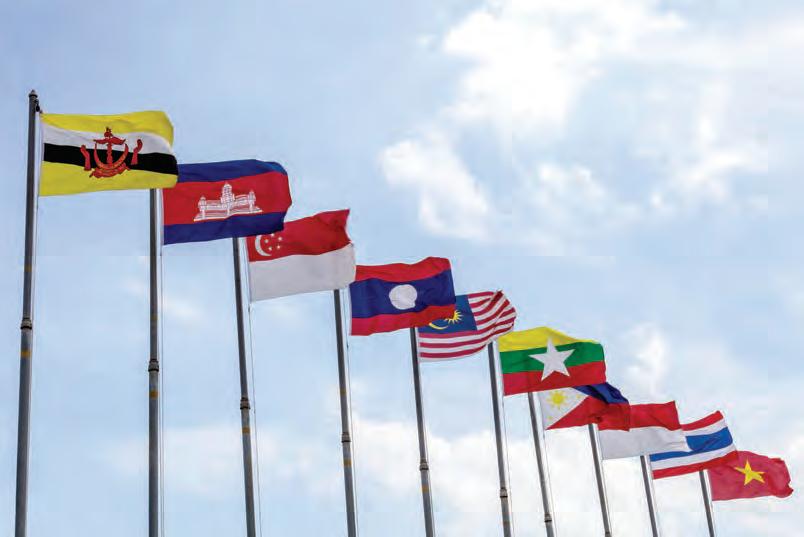
As societies and economies in Asia continue to grow apace, decisions and events in the region have the capacity to reverberate around the world.
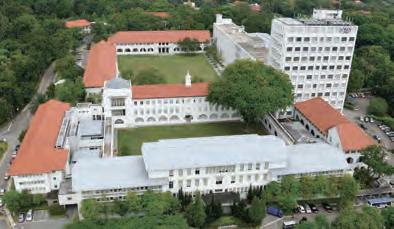
Our scho ol is ideally located in one of the be st pub lic policy labo rato ries in the wo rl d. The c strong governance and e ective ity-state is widely known for its foreign and domestic policies.
Since 2004, we have welcomed and educate d over 24,000 leaders and policymakers. Our dynamic, evolving curriculum has empowered them with the knowledge and skills to solve increasingly complex problems in a world pivoting towards Asia.
When you study with us you can expect to gain real world insights from our distinguished faculty of scholars and practitioners
who are trained in the world’s best universities. Our dedicated faculty members bring extensive experience and intellectual candour. They help create a rigorous academic environment and provide unparalleled learning opportunities.
POWERFUL PROFESSIONAL, PERSONAL AND ACADEMIC NETWORKS.

You will join a g lo bal ne tw ork of the world’ s most tal ented young leaders and form invaluable
profe ssional and personal connections with an alumni network spanning over 100 economies.

You will also benefit from the school’s extensive global academic network, which includes strategic partnerships with the prestigious Global Public Policy Network (GPPN), which takes in Columbia University, the London School of Economics & Political Science (LSE) and L’institut d’études p among others. olitiques de Paris (Sciences Po),
The school is also a member of the School of International A airs Association of Professional (APSIA), which is dedicated to the improvement of professional education in international a airs and the advancement of international understanding, prosperity, peace, and security.
Empowered over 24,000 leaders and policymakers since 2004
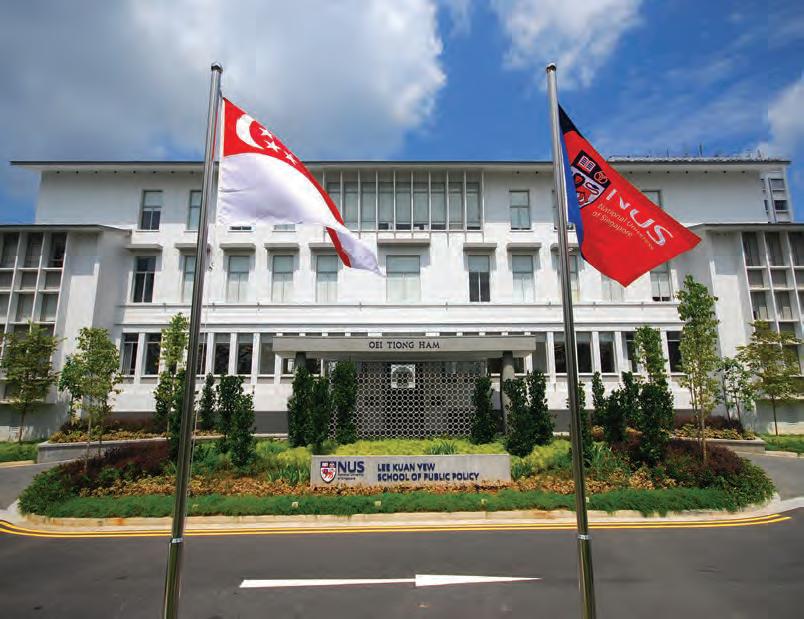
The standard of living for millions of people in Asia continues to rise, as do the ambitions of individual countries in the region. This development is delivering economic growth, stability, and security, but it is also driving tension, conflict and uncertainty.
If the rising power, aspiration, and conflict in Asia is not managed well, the regional and international economic and security system will be shaken.
Better domestic governance in Asia is essential. However, it is that, without paying serious attention to the relationships between states in Asia, and around the world, particularly the United States, Europe, and the Gulf and Middle East.
The need for knowledgeable, capable leaders with a firm grasp on international a airs in the region and beyond has never been greater.
For years now the world’s economic centre has been pulling away from the West. While some might argue who will take America’s place as the engine of the world economy, the facts are clear and undisputed. According to the Organisation for Economic Cooperation and Development, Asia is and will continue to be the world’s fastest-growing region, with China and India leading the charge. By 2050, these two countries will become the world’s largest economies. The world’s economic centre will be in Asia.
y politically as well. However, as standards iving rise so too do expectations and risks. In an asing their diplomatic and military activities. or well-trained leaders with a solid grounding
The time for Asia is now. Prepare yourself for that future by enrolling in the school today.”
Professor Danny Quah Dean and Li Ka Shing Professor in Economics, Lee Kuan Yew School of Public Policy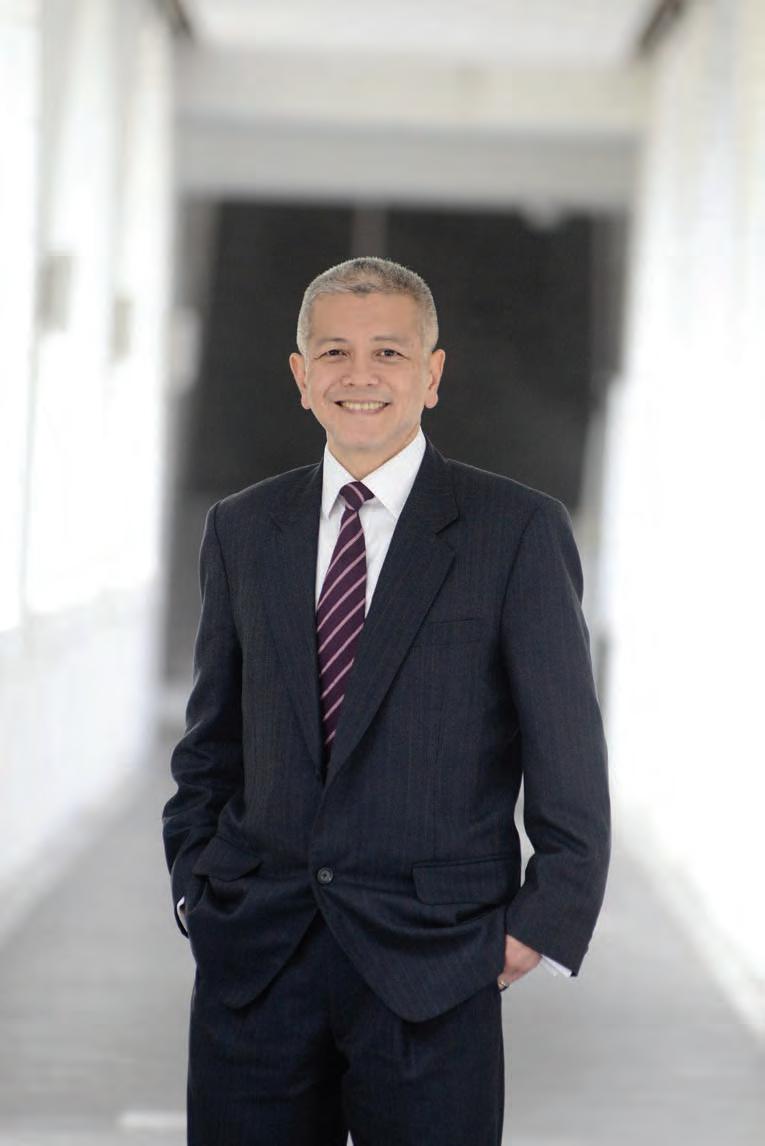
Asia’s rapid rise has had domestic public policy within individual states. The inevitable changes to pu blic management and leadership, social policy, and public finance, have forced governments to change the way they make and implement policy.
As a result, public policy training th at f ocu ses on m an ag ing been given a high-priority.
But t he w or ld is c ha ng ing. Traditional domestic public policy concerns like social movements,
democratisation, ethnic and religious extremism, electoral politics, and the role of the media are increasingly being influenced externally by larger regional changes.
The two-year, full-time programme provides a wide range of elective modules (including relevant domains in public policy studies) with ample scope to specialise in areas of interest.

Students enjoy connecting with other students from Singapore, Asia, and the rest of the world through an intense and uniquely immersive experience of fastdeveloping Asia in its many dimensions and nuances.
just that, via a comprehensive
In order to understand and a shift in educational emphasis is needed, from purely domestic of regional and global issues. A sound grounding in international multidisciplinary curriculum.
Again st t h e b a ckd r op o f a rising Asia, being in Singapore gives students
a t th e L KYS PP th e p er fect va ntag e poi n t f r om whi c h to wat ch th e a c tion unfo ld . A gleaming metropolitan city-state, Singapore is a diverse melting pot of Eastern and Western cultures. T hi s is a gl oba ll y ren ow ed economic hub where over 7,000 multinational corporations (MNCs) are headquartered.

At the LKYSPP, you will gain acce ss to internsh ips in the public, private and non-profit sector s du rin g sc ho o l b re ak s, fac ilit ate d by t he s chool’s ex ten sive networ ks across leading think-tanks, consulting firms, and other organisations. Sin gap ore’ s cen tral l oc at ion in the heart of Southeast Asia also makes it an ideal base for students to explore and learn about this rapidly-developing region.
All of which makes it an ideal place to study international successful and influential career.
Professor Francesco Mancini Vice Dean (Executive Education) and Associate Professor in Practice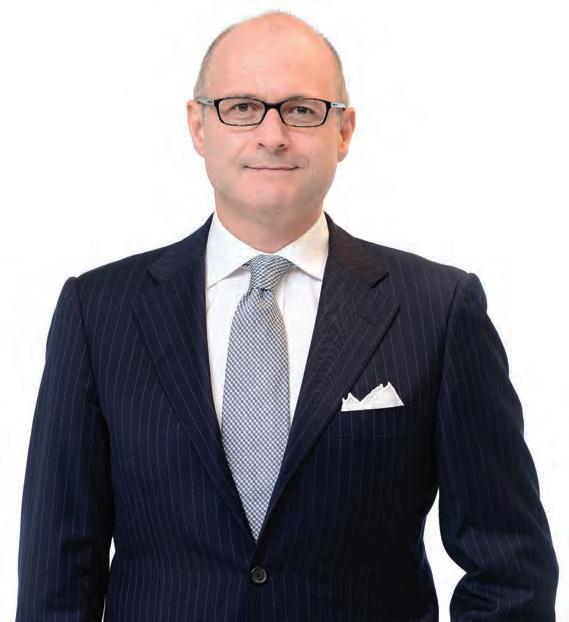
At the Lee Kuan Yew School of Public Policy, students explore answers to global problems from multiple perspectives, learning not only from the Western, but also from the Asian experience. Students can actually live the growing role of the region on the global stage during their studies.
•
What can you expect to gain from the MIA programme?
• A critical awareness of the strengths and limitations of each international a airs subfield, and how to make sense of its complexities.
•
A working knowledge and deep understanding of issues, theories and debates in international a airs that can help you achieve an exciting career in diplomacy, public and foreign service, business, security, conflict resolution and development.
•
How to apply key theories and analytical tools to devise solutions for complex problems
• The confidence to provoke and e ect positive transformations in the world, solving problems in ways that are constructive, imaginative, analytically sound, practically feasible and culturally sensible.
Cross-cultural and decisionmaking skills to make practical judgements that are balanced by theoretical, analytical and ethical considerations.

• A deep, nuanced understanding of Asia and its place in the world.
As an MIA student, you will be requir ed t o r ead 64 u nit s and achieve a minimum Grade Point Average (GPA) of 3.0 to graduate.
You need to complete the following:
5 Core Courses
5 Specialisation Electives
Professor Kanti Bajpai Vice Dean (Research and Development) and Wilmar Professor of Asian Studies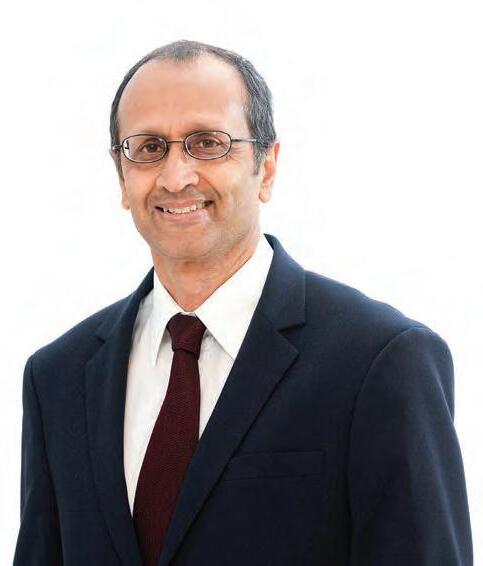
3 Electives
1 Restricted Elective Master’s Thesis/ Capstone Project (based on a two-month internship)/ White Paper
The (MIA) programme is intended to equip students with tools of analysis to understand the continuities and upheavals in affairs and to get them to think not only rigorously but also creatively about the complexities of policy making for a safer and more sustainable world.
PP5901
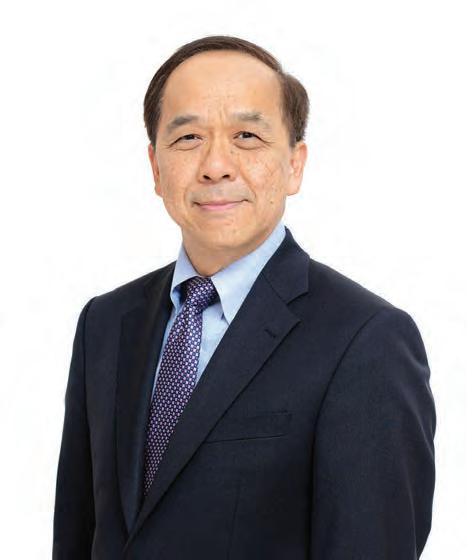
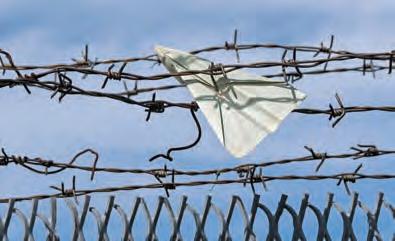
PP5913
This cou rse i ntr odu ce s st u de n ts to t h e fo un dation s of comparative politics, which is the study of the domestic politics that happens within states. From taking this course,
students will be able to answer questions such as: what is a state? between political institutions, economic development, and governance? How do political institutions change or persist? Why do some states experience conflict and contention among their people? Overall, the course will empower students with theories world work.
This course will introduce students to the predominant ways in which scholars of world politics go about making sense of the contemporary world. Three main approaches will be emphasised: realism, liberalism, and constructivism. In particular we will explore theories of the balance of power, the balance of threat, the rise and decline of great powers, hegemony, cooperation theory, the role of international institutions in global governance, and the structures and relations of identity between and among states and societies. Major contemporary issues that will be addressed include the relations among China, Europe, and the United States; the global political economy, including trade and development; and the prospects for global cooperation on issues such as climate change.

to take the pulse of Asia for those who are interested in interpreting the continent.
If you are really interested in Asia, you need to be here in order to analyse it.
Professor Khong Yuen Foong
Li Ka Shing Professor in Political Science and Co-Director, Centre on Asia and Globalisation
Why is Asia the way it is today? What are the forces that shaped it? What are the new drivers that are not rooted in history? What new trends and developments in Asia should analysts look out for? This class provides a historical and contemporary perspective of Asia’s position in the world. It engages in debates surrounding Asia from the onset of the Cold War to the present. It discusses how the regional order in Asia came about, and aims to understand how that order is evolving as new dynamics emerge and power shifts occur.
PP5914
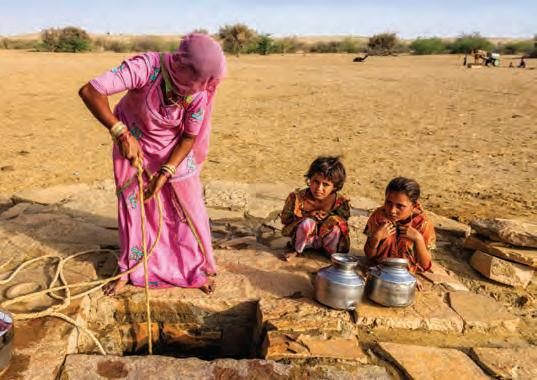
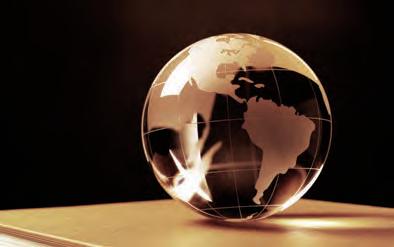
This course provides an introduction to contemporary issues in the global political economy. It examines a wide range of topics including trade, foreign investment, finance, and economic development from micro, macro, and institutional
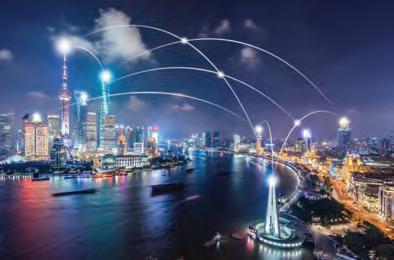
perspectives. These topics will also be interrogated in the context of developed and developing countries and in international relations as well as domestic or comparative politics.
To successfully identify and address the critical questions in international our own analysis and to critically assess what others propose. This course provides an introduction t o the principal research
You will assess the strengths and weaknesses of alternative approaches, learn how and when
and gain experience in critically evaluating published research. By the end of the module, you will have developed a personal toolkit that includes small-N case studies, comparative case studies, process tracing, hypothesis testing, analysis of variance, basic statistical methods (including
regr es sion ana lysi s), and discourse analysis.
Professor Jonathan Art Chu Assistant Professor (Presidential Young Professor) MIA Programme Chair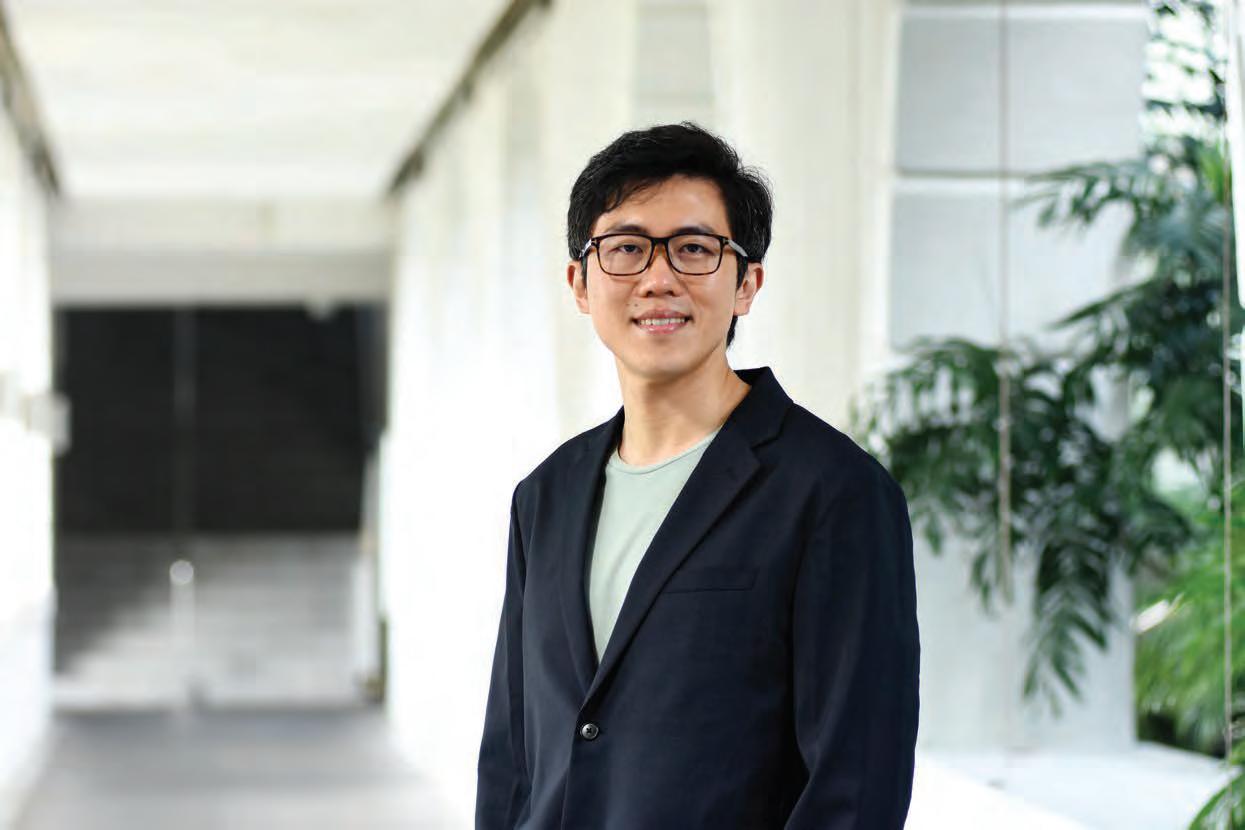
Students in the MIA programme will learn so much not just from the LKYSPP faculty, but from each other as well. The relationships they form within this community will serve them for the rest of their career.
Double Degree and Exchange Programme:
Qualified students can pursue a Master of Arts in International Economics and Finance double degree with our partner institution, Paul H. Nitze School of Advanced International Studies (SAIS), a graduate school of Johns Hopkins University.
with a strong foundation in both theoretical frameworks and policy knowledge in various subfields of international relations, together with an immersive experience in Asia, while the Masters of Arts in International Economics and Finance programme prepares students to understand advanced economic theories, master quantitative and econometric skills, and analyze a wide range of international economics and financial issues.
Admission is highly competitive and accepted students get to spend one year at the LKY School and the second at SAIS. Application to SAIS should be made at the end of the first semester at LKY School. Upon successful completion of the programme, graduates will be awarded with two Master degrees from LKY School and SAIS.
Eligible MIA students can participate in a 1-semester exchange programme with our partner institutions, which include:
John Hopkins School of Advanced International Studies (SAIS), USA
Hertie School of Governance, Germany
Bocconi University, Italy
University of St Gallen, Switzerland
The Graduate Institute of International and Development Studies, Geneva, Switzerland (IHEID)
The University of Tokyo, Graduate School of Public Policy (GraSPP), Japan
Tsinghua University, China
Fudan University, China
Seoul National University, Graduate School of International Studies, South Korea
Korea University, South Korea
Yonsei University, South Korea
Nazarbayev University, Kazakhstan
The Ambassador's Circle is an exclusive Master in International local diplomat, discussing current geopolitical concerns and the changing realities of modern diplomacy.
• Dr Arken Arystanov, Former Ambassador Extraordinary and Plenipotentiary of the Republic of Kazakhstan to the Republic of Singapore, New Zealand and the Commonwealth ofAustralia
• H.E. Ashok Kumar Mirpuri, Former Ambassador of the Republic of Singapore to the United States of America
• Ms Barbara Plinkert, Former European Union Ambassador to Singapore
• Mr Bruce Gosper, Former Australian High Commissioner to Singapore
• H.E. Choi Hoon, Ambassador of the Republic of Korea to Singapore
• Mr Flavio Soares Damico, Former Ambassador of Brazil to Singapore
• Mr Jawed Ashraf, Former Indian High Commissioner to Singapore
• Mr Niclas Kvarnström
Former Sweden Ambassador
• H.E. Ngurah Swajaya, Former Ambassador of Indonesia to Singapore
• H.E. Dr. Norbert Riedel, German Ambassador to Singapore
• Mr Rafik Mansour, Former Chargé d'Aaires a.i. U.S. Embassy Singapore
• H.E. Sarah Mcgrath, Ambassador of Ireland to Singapore


KYSPP graduates are highly can be found working in g over nm ents, multil ateral instituti o ns, co rp ora tions a nd non-governmental organisations across the world.
Our extensive network of alumni contribute to public good in a wi de varie ty o f fi e lds su ch as economic development, social pol icy, finan ce, intern ati onal
consulting, fulfilling the school’s missi on o f im pr ov ing and tranformin g th e lives o f the people they serve.
Equ ip ped with int er national per spectives and a nuanced un dersta nd ing of Asia, our graduates go on to be leaders in their respective fields.
The Career Services Unit in the LKYSPP connects our students with employers to help them gain valuable expe rience in the workplace, provide them with opportunities to apply their academic experience and give them a competitive edge in their job search.
From the Wang-Koo talks between China and Taiwan to the more recent Trump-Kim summit, Singapore has stood at the centre of historic meetings between longtime adversaries seeking peace. Why do global leaders choose Singapore as the ideal location for reconciliatory talks? Join the (MIA) programme today and understand the dynamics behind global decisions such as these.
Professor Selina Ho Assistant Professor and Co-Director, Centre on Asia and GlobalisationSome of the prominent organisations, where our students have interned.
Abbott Laboratories
ASEAN Advisory Pte Ltd
Asia Europe Foundation Centre for Humanitarian Dialogue (HD Centre)
European Union Delegation to Singapore
Global Environment Institute
GovInsider
Hengqin Institute of Innovation and Development
International Centre for Integrated Mountain Development (ICIMOD)
United Nations and United Nations Development Programme (UNDP)
World Bank
We seek applicants who are passionate about understanding the transformation that is taking place in Asia and across the world. They need to be highly motivated, outward-looking, and open to new ideas.
Applicants seeking admissi the programme should po ssess a good Bachelors degree (Honours second class and above) or its equivalent. Applicants should have ideally a minimum of two years of work experience.
Proficiency in written and spoken English is critical.
Applications to the Master in ternational airs will be In accepted from 1 August till
15 December, every year.
REQUIRED DOCUMENTS:
Online application form
Degree scrolls and academic transcripts
(including grading description)
Curriculum Vitae or Resume
TOEFL iBT/ TOEFL iBT Home Edition/ IELTS / IELTS Indicator
Personal statement of no more than 600 words describing how your personal, academic, and/or professional background inform your motivation for applying to the MIA programme; how you hope to contribute to your classmates and programme's success; and how you hope to use your time at LKYSPP to further your career or academic goals.
1 writing sample (no more than 2,000 words)
2 letters of reference (can either be a professional or academic referee(s))
Applicants with qualifications attained in English-medium institutions in Australia, Canada, India, Ireland, New Zealand, Philippines, Singapore, the UK or the US are exempted from providing test scores. For qualifications attained in countries not mentioned, if your Bachelor or Master degree was conducted entirely in English, TOEFL or IELTS test scores may be waived if you provide a letter from your institution.
Year 1 Semester 1 (August-December)
PP5901
International Relations:
Theory and Practice
PP5914
Global Politics and the Economy
PP5904
*Specialisation Elective 1
Semester 2 (January – May)
PP5913
Comparative Politics
PP5915
International Relations of Asia
*Restricted Elective 1
*Specialisation Elective 2
Year 2
*Specialisation Elective 3
*Specialisation Elective 4
*Specialisation Elective 5
**Exchange Semester Abroad
PP5910 MIA Thesis
T analysis, and writing.
Elective 6
Elective 7
Elective 8
he MIA thesis is an independent piece of writing that represents the culmination
OR
PP5912 MIA White Paper
The White Paper is a policy-focused report that addresses a current or emerging international issue facing an imagined/hypothetical client, which can be a government, international or transnational organisation, private sector entity, or civil society entity such as an NGO.
The aim of the White Paper is to allow students to apply the knowledge and skills that they have learnt in the MIA to contemporary real-world problems; to define and or manage the problem; and to formulate alternative policy options and develop specific, actionable recommendations backed by argumentation and evidence.
OR
PP5911 Capstone Project (based on a 2-months internship experience)
The MIA Capstone Project is an internship-based project culminating in a paper/ report on an international issue or challenge that the student worked on during the internship. The internship aims to allow students to apply the knowledge and skills that they have learnt to define and analyse international policy issues, evaluate existing policies, formulate and assess policy options and develop specific, actionable recommendations for their client organisation.
MIA students may also take the electives from the Faculty of Law and Faculty of Arts and Social Sciences as their specialisation.
** Students can apply to go on an exchange semester with some of the exchange institutions.
The following tuition fees are applicable for Academic Year 2023/2024.Please note that fees are subject to change.
* Tuition fees subject to prevailing GST (8% in 2023 and 9% from 2024)
Please refer to the programme website for more information on other fees and financing options. https://lkyspp.nus.edu.sg/graduate-admissions/fees-and-funding#costofliving
Please note the fees below are applicable if you are accepted into the MIA programme.
Student Service Fee (per semester): S$167.90
Health Service Fee (per semester): S$83.25
Fees shown above are inclusive of prevailing GST and are subject to change. Additional costs include payment for student development programmes, the orientation programme, student pass/visa fees, and the programme closure event. These costs vary from year to year, but are to be S$4,000 for the duration of the programme.
Please refer to our website for an estimation of monthly living costs in Singapore.
Applications open on 1 August and close on 15 December every year. For more information, contact us at lkypostgrad@nus.edu.sg or visit https://lkyspp.nus.edu.sg/graduate-programmes/master-in-internationa
To visit our Admissions website, please scan the QR code below:

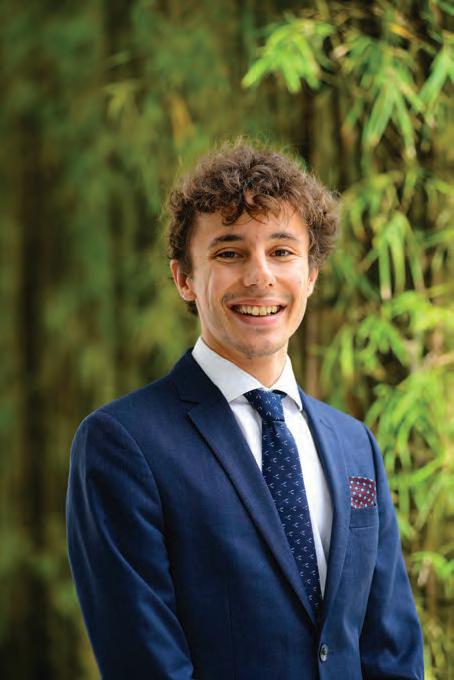

I chose to study the MIA at LKYSPP because of the Asia-focussed curriculum. I aspire to build on my knowledge of traditional Chinese culture in order to fin d a particularly Asian path to good governance and policy. The professors are highly rega rd ed a nd I le arn ed a lot from them. Events such as the Ambassador Circle Series provided me with the opportunity to learn more about the realities of international our MIA class has helped me think from a multifaceted and multicultural perspective. My main takeaway from this programme is that knowledge reshapes destiny, and it’s never too late to achieve your goals.
Zheng Weiting China, MIA class of 2019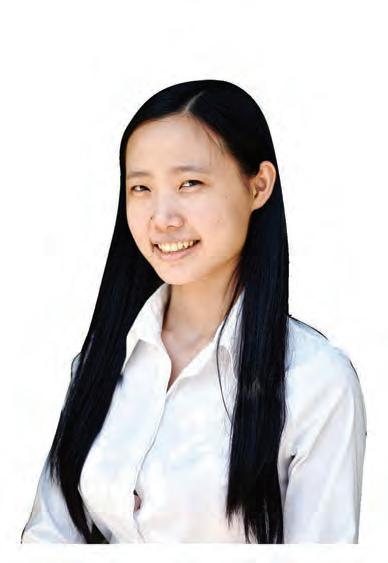
The Lee Kuan Yew School of Public Policy was at the top of my list when I was choosing to pursue my masters. During my 2 years at LKYSPP, I have worked together with people from different countries and diverse backgrounds to create a truly global perspective on international affairs. I have done an internship in China, an exchange programme in Kazakhstan, and Singapore is now my 'second home'.
policy perspective. My experience at the complementary attributes essential for unpacking the increasingly complex geopolitics of the world. Another important factor for me choosing this programme was the Asia-focussed nature of its there is clarity of thought on Asian geopolitics can one contribute productively to shaping it.
I now have the research and analysis skills world economic and development landscape. The MIA programme strikes the perfect balance between practical application and theoretical understanding to deliver a well-rounded course perfectly suited to anyone looking to make a
Brusaporcowhen there is clarity of thought on Asian geopolitics can one contribute productively to shaping it.
I have worked together with people from different countries and diverse backgrounds to create a truly global perspective on
I chose to study the MIA at LKYSPP because of the Asia-focussed curriculum.